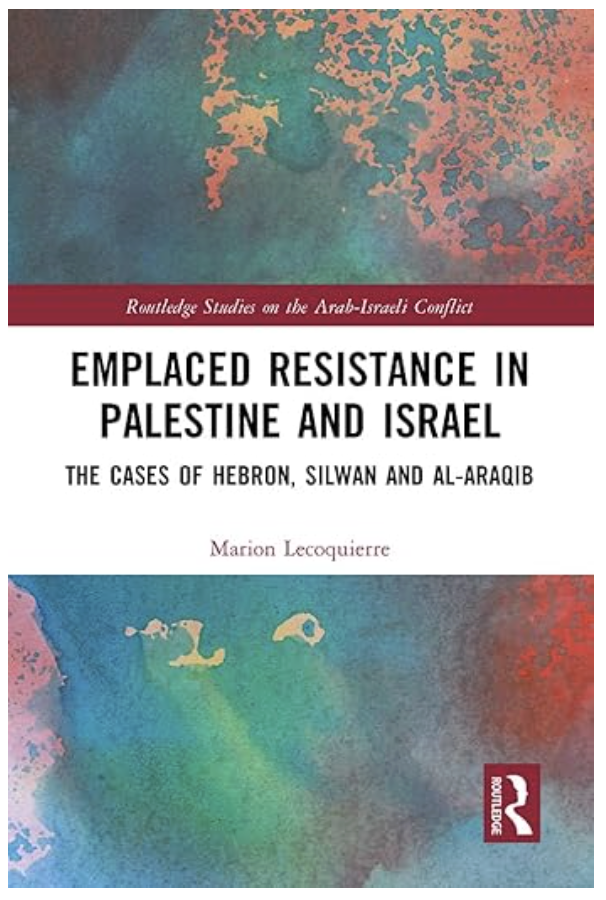
suggested readings
On this page we share a curated list of books and articles relating to shared sacred sites, including essential readings and new releases. The bibliography is a catalog of references to bibliographic and multimedia publications on the subject of shared sacred sites.
Below are also recommendations from what our core team is reading now.

search for resources on the study of shared sacred sites
Shared Sacred Sites Recommends
The Battle for Sabarimala tells the story of one of contemporary India's most contentious disputes--a long running struggle over women's access to the Hindu temple at Sabarimala. In 2018, the Indian Supreme Court ruled that the temple, which had traditionally excluded women aged ten to fifty because their presence offended the presiding deity, had to open its doors to all Hindus. The decision in Indian Young Lawyers Association (IYLA) rocked the nation. Protests were launched around India, and throughout the diaspora, a record-setting human chain called the 'Women's Wall' was coordinated, and dozens of petitions were filed asking the Supreme Court to reverse its landmark opinion. Most significantly, the IYLA opinion led the Court to openly reconsider the Essential Practices Doctrine that has been a mainstay of Indian religious freedom jurisprudence since 1954.
region: South Asia
open access: NO
For centuries, the Mosque of Eyüp Sultan has been one of Istanbul’s most important pilgrimage destinations, in large part because of the figure buried in the tomb at its center: Halid bin Zeyd Ebû Eyûb el-Ensârî, a Companion of the Prophet Muhammad. Timur Hammond argues here, however, that making a geography of Islam involves considerably more. Following practices of storytelling and building projects from the final years of the Ottoman Empire to the early 2010s, Placing Islam shows how different individuals and groups articulated connections among people, places, traditions, and histories to make a place that is paradoxically defined by both powerful continuities and dynamic relationships to the city and wider world. This book provides a rich account of urban religion in Istanbul, offering a key opportunity to reconsider how we understand the changing cultures of Islam in Turkey and beyond.
region: Turkey
open access: Yes
The Israeli-Palestinian conflict gravitates constantly around the question of territorial control due to the settler-colonial principle present at the core of the Zionist project. Acknowledging space as a central tool of domination used by the Israeli authorities, this volume sheds light on the way space can become both a resource for and an outcome of protest, with an emphasis placed on the way it is used and produced through practices of resistance by subaltern groups.The research relies on a comparative approach, relying on data collected in the course of fieldwork conducted between 2012 and 2015 in Palestine and Israel. It focuses on three "sites of contention", which include the H2 area in Hebron (the occupied Old City, under Israeli authority), the "core" neighbourhoods of Silwan (Wadi Hilwe and al-Bustan) and the unrecognized Bedouin village of al-Araqib, in the Negev desert. Through these three case studies, the book tackles different strategies that engage with the materiality of space, place, sense of place, territory, landscape, network and scale, showing the mobilization of a real "spatial repertoire" of contention. The different regimes of control give rise to strategies that are first and foremost emplaced, i.e. rooted in the local.
region: middle east
open access: No

choreographies of shared sacred sites
edited by Elazar Barkan & Karen Barkey
(Columbia 2015) This anthology explores the dynamics of shared religious sites in Turkey, the Balkans, Palestine/Israel, Cyprus, and Algeria, indicating where local and national stakeholders maneuver between competition and cooperation, coexistence and conflict. Contributors probe the notion of coexistence and the logic that underlies centuries of "sharing," exploring when and why sharing gets interrupted—or not—by conflict, and the policy consequences.
sharing sacred spaces in the mediterranean
edited by Dionigi Albera and Maria Couroucli
Contributors examine intertwined religious traditions along the shores of the Near East from North Africa to the Balkans, challenging conflictual narratives about the interactions between Christians, Muslims, and Jews.
sharing the sacra
edited by Glenn Bowman
Chapters based on fieldwork from such diverse sites as India, Nepal, Sri Lanka, China, Turkey, Morocco, Tunisia, and Vietnam demonstrate how sharing and tolerance are both more complex and multifaceted than they are often recognized to be.
The Religious Dimensions of Shared Spaces
by Paul D. Numrich
Space sharing by groups and organizations is widespread in the United States, from commercial partnerships, to government and private sector joint use agreements, to the use of public facilities and commons, and more. Drawing upon a variety of historical examples and contemporary cases, The Religious Dimensions of Shared Spaces offers a focused and systematic analysis of space sharing involving religious groups or organizations.
Muslim Pilgrimage in Europe
edited by Ingvild Flaskerud and Richard J. Natvig
In spite of Islam’s long history in Europe and the growing number of Muslims resident in Europe, little research exists on Muslim pilgrimage in Europe. This collection of eleven chapters is the first systematic attempt to fill this lacuna in an emerging research field. Placing the pilgrims’ practices and experiences centre stage, scholars from history, anthropology, religious studies, sociology, and art history examine historical and contemporary hajj and non-hajj pilgrimage to sites outside and within Europe.
Crossing Confessional Boundaries
by John Renard
Arguably the single most important element in Abrahamic cross-confessional relations has been an ongoing mutual interest in perennial spiritual and ethical exemplars of one another’s communities. Ranging from Late Antiquity through the Middle Ages, Crossing Confessional Boundaries explores the complex roles played by saints, sages, and Friends of God in the communal and intercommunal lives of Christians, Muslims, and Jews across the Mediterranean world, from Spain and North Africa to the Middle East to the Balkans.
The Political Lives of Saints
BY ANGIE HEO
Since the Arab Spring in 2011 and ISIS’s rise in 2014, Egypt’s Copts have attracted attention worldwide as the collateral damage of revolution and as victims of sectarian strife. Countering persecution rhetoric and Islamophobia, The Political Lives of Saints draws on extensive fieldwork to explore how popular saints function as material media that organize social relations between Christians and Muslims in Egypt toward varying political ends.
religiographies
by Dionigi albera, sara kuehn and manoël pénicaud
This special issue offers insight into the formation, adaptation, and negotiation of shared and contested sacred places and devotional practices and provides a more nuanced picture of the multiplicity of interfaith crossings and their historical transformations. The articles combine (art) history/archaeology, Islamic Studies and anthropology; attend to wider cultural interminglings; open up new theoretical considerations; and point to new research directions on multi-faith sacred centres.
Inter-religious Practices and Saint Veneration in the Muslim World
edited by by Michel Boivin and Manoël Pénicaud
This volume studies the immortal saint Khidr/Khizr, a mysterious prophet and popular multi-religious figure and Sufi master venerated across the Muslim world. Bringing together the different worship practices of Muslims, Christians, Hindus and Sikhs in countries with very different cultural and religious backgrounds, the study includes research from the Balkans to the Punjabs in Pakistan and in India.












